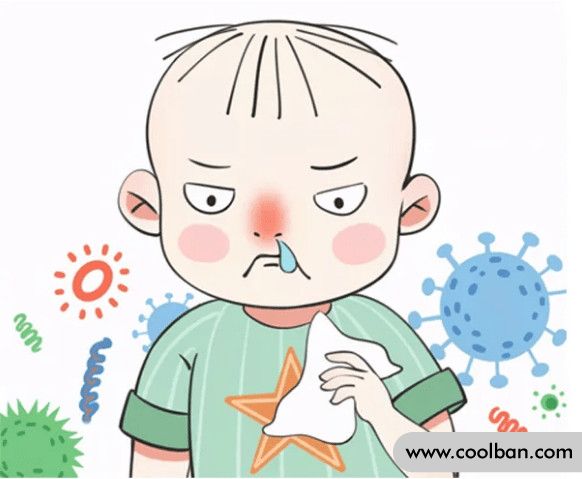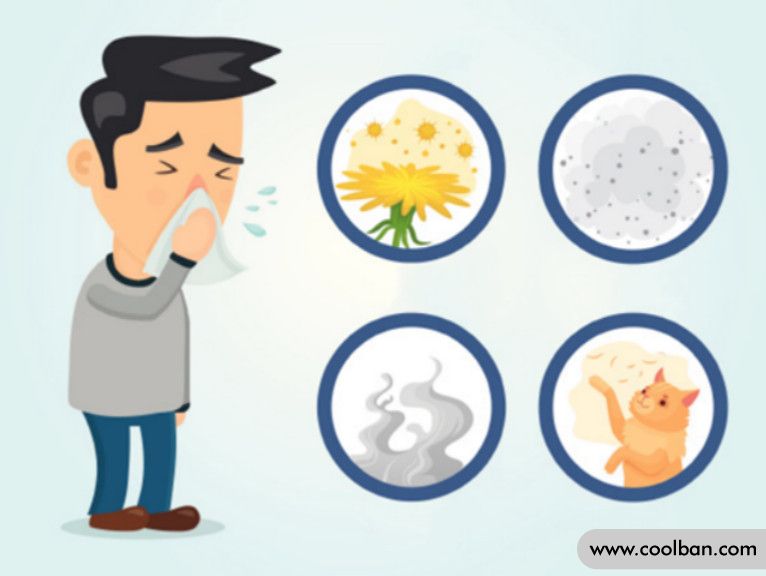What should I do if I suffer from allergic rhinitis in autumn?
Summer and autumn alternate, in every night that is tortured by nasal congestion and unable to sleep, in every morning when sneezing is constant, it is the unspeakable pain of allergic rhinitis patients. If you don’t want to face this kind of torture every time you come to the beginning of autumn, you must first avoid some common misunderstandings, recognize allergic rhinitis early, and do a good job in scientific protection.

What are the symptoms and signs of allergic rhinitis patients?
1. Symptoms: sneezing, itchy eyes, conjunctival congestion, runny nose, nasal congestion, etc.
2. Signs: common nasal mucosa edema, watery nasal discharge.
3. Allergen test: The patient is positive for at least one allergen.
What factors are associated with allergic rhinitis?
1. Genetics: The occurrence of allergic rhinitis is related to heredity. Clinical medical studies have found that when both parents suffer from allergic rhinitis, the child's prevalence rate is as high as 75%; when only one parent is affected, the child's prevalence rate is as high as 50%.
2. Environment: The pathogenesis of allergic rhinitis is closely related to the environment in which the patient lives. The increase of chemical allergens, the mutation of bacteria and viruses, the deterioration of climate and other factors. Allergic rhinitis is prone to occur when the patient is in an environment with pollen flying or dust, or even alternating hot and cold air.
3. Inhaled antigens include dust mites, house dust, animal dander, wind-pollinated pollen of various trees and grasses, etc.
4. Industrial waste gas, dust, car exhaust and even inkjet from printers may cause allergic rhinitis.

3 major misunderstandings of allergic rhinitis:
1. I thought it was a cold and took cold medicine madly
Both cold and allergic rhinitis patients have symptoms of runny nose, sneezing, and nasal congestion, but allergic rhinitis patients also experience itchy nose and itchy eyes. A cold can be relieved naturally in about a week, while the symptoms of allergic rhinitis generally last for a month or two, or even perennial nasal congestion. Therefore, patients should identify whether they have a cold or allergic rhinitis in time, and do not take medicine indiscriminately.
2. After the allergy season, you will be fine by yourself, and do not pay attention to treatment
Many patients feel that allergic rhinitis cannot be cured, and it will be fine to endure this season, so they do not pay attention to daily protection and treatment, but it may evolve into more serious allergic asthma over time. If it is an acute asthma attack, life-threatening.
3. Refuse hormone therapy and believe in remedies
The phenomenon of "talking about hormone discoloration" is very common. Some patients would rather believe in the so-called "ancestral secret recipe" that does not contain hormones in false propaganda, rather than using nasal sprays regularly. Don't they know that many "secret recipes" secretly add hormones, and the dose cannot be used. control, the more dangerous. Nasal hormones are not only the first-line drugs for the treatment of allergic rhinitis in our country, but also the first-line drugs of choice abroad. The common side effects of these drugs are mild, mainly limited to the nose and mouth, such as epistaxis, dry nose, abnormal sense of smell, etc., and will return to normal after stopping the drug. The side effects that everyone is worried about, such as gaining weight and affecting growth and development, are not common.

5 suggestions for boosting immunity:
To prevent allergic rhinitis, in addition to staying away from allergens, paying attention to life hygiene, regular work and rest in daily life, developing healthy living habits, and improving autoimmunity, you can do the following:
1. Exercise to strengthen the body's resistance. Wear a mask when going out to reduce contact with allergens and avoid exposure to excessive chemicals, cosmetics, etc.
2. The diet should be light and balanced. Pay attention to vitamin C and calcium supplementation. Eat more nutritious fruits, try to eat less junk food with preservatives, and eat less spicy food, which may be the triggering factors of allergies.
3, maintain a good attitude, avoid excitement. Impatient mood will make the patient's self-perceived symptoms aggravate.
4, pay attention to nasal hygiene. The patient can wash the nose with normal saline, smoke the nose with hot steam or wet the nose with a hot towel to promote local blood circulation and enhance the resistance of the nose to disease.
5. The patient can close the bedroom window when sleeping to reduce allergens floating into the room. Buy a car with a built-in pollen filter, and keep the windows closed when driving.
When allergic symptoms are severe and difficult to relieve on their own, it is recommended to seek medical attention in time to avoid misdiagnosis or other complications.
